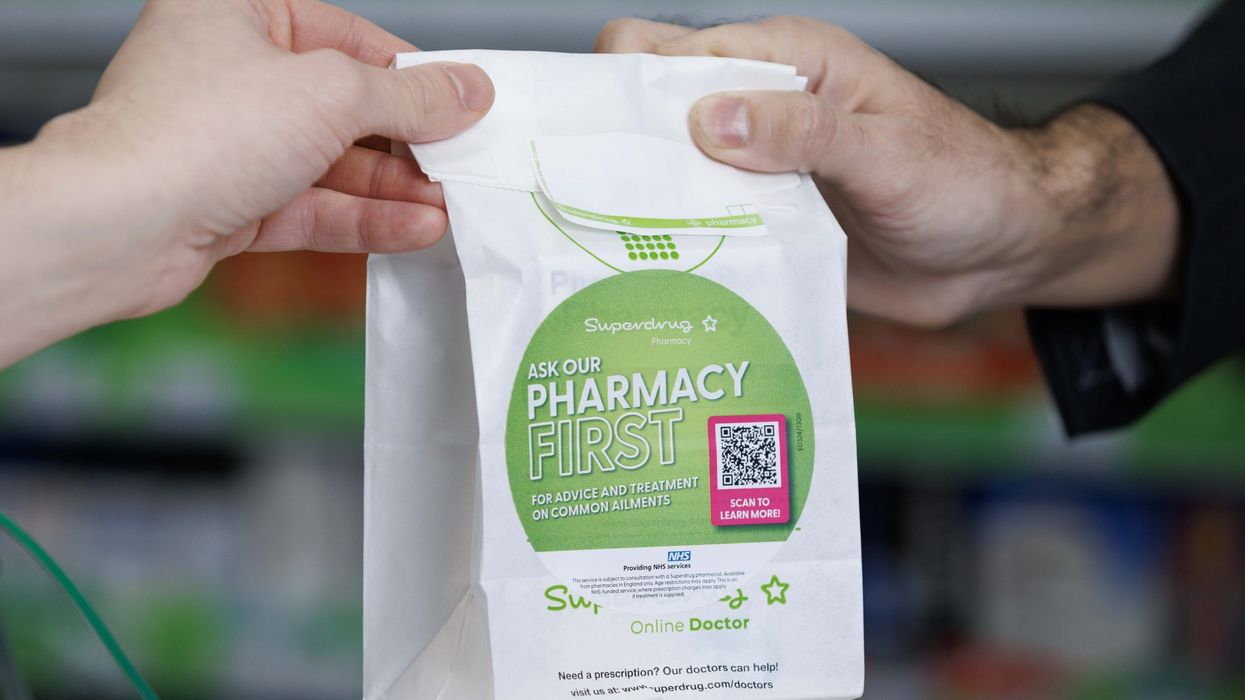Community pharmacies are expected to deliver at least 320,000 Pharmacy First consultations each month by March 2025
NHS England will be further harnessing the potential of community pharmacies in the second year of the delivery plan for recovering access to primary care.
The health service has set a target to increase the monthly patient volumes across all three pharmacy services by March 2025, aiming for 320,000 Pharmacy First clinical pathways consultations, 25,800 oral contraception consultations, and at least 71,000 blood pressure check consultations.
NHSE recently published the updated plan and actions for 2024/25 that are centered around four priority areas - empowering patients, implementing modern general practice access, building capacity and cutting bureaucracy.
The two-year delivery plan was originally published in May 2023 to make it easier for patients to access care while taking pressure off general practice.
NHS England will review the ambition of this trajectory in September, when public uptake of the service in the first 9 months is understood.
“We will continue to monitor uptake by Distance Selling Pharmacies, which have an important role to play in providing wider access to patients via video consultations,” it said.
The updated plan states that additional funding will be allocated in 2024/25 to support the continued delivery of the delivery plan for recovering access to primary care, including funding to support the continued roll-out of Pharmacy First service.
“Confirmation of allocations (where applicable) and further detail of funding flows will follow as soon as possible,” it adds.
The NHS has also set a goal to increase GP specialty training by 500 places in 2025/26, advancing further towards achieving the ambition outlined in the NHS Long Term Workforce Plan (LTWP).
As outlined in the LTWP, the NHS and government are committed to raising the number of GP training places by 50 per cent to reach 6,000 by 2031/32.
Since the publication of the plan last year, the health service has delivered “record numbers of GP appointments.”
The NHS revealed that in the 12 months leading up to February 2024, over 360 million appointments were delivered, excluding those for Covid vaccinations. This marks an increase of 57.5 million appointments compared to the period before the pandemic.
Pharmacists Feel Pressure to Meet PF Targets
With NHS England raising the target for Pharmacy First consultations, there is growing apprehension regarding the pressure on pharmacists to meet the minimum activity threshold for clinical pathway consultations.
The Pharmacists' Defence Association (PDA) has expressed concern that some of its members in England are facing “increasing pressure from their management around the performance of the Pharmacy First Service as the minimum activity thresholds increase.”
PDA members have reported the introduction of daily or weekly targets and the use of 'league tables' for comparing performance with other pharmacies by certain employers.
In an ongoing PDA survey on the Pharmacy First Service, 35 per cent of respondents admitted that they have been assigned targets. However, 94 per cent of the participants stated that no additional staff members have been provided to manage the increasing workload.
While pharmacists acknowledged the positive impact of Pharmacy First in terms of improving patient access and potentially enhancing their professional growth, many recalled the days of the Medicines Use Review (MUR) service and the pressure exerted by some employers to set unachievable targets based on commercial objectives rather than patient needs.
“Some pharmacists believe that this is beginning to be mirrored in some cases regarding the Pharmacy First Service,” the PDA said.
According to the Association, the required number of clinical pathway consultations is set to double between April 2024, with a minimum of 5 consultations mandated for the month, and May 2024, when contractors will need to conduct 10 consultations to claim the block payment.
“This will increase over time to 30 consultations per month from October 2024 onwards,” it stated.
Apart from concerns regarding targets, pharmacists delivering the service have reported issues concerning inappropriate NHS referrals and walk-in patients who fail to meet the gateway criteria for any of the seven clinical pathways.
While these consultations do not contribute towards meeting the minimum activity threshold, pharmacists are still required to “deal with any frustration expressed by those patients.”













